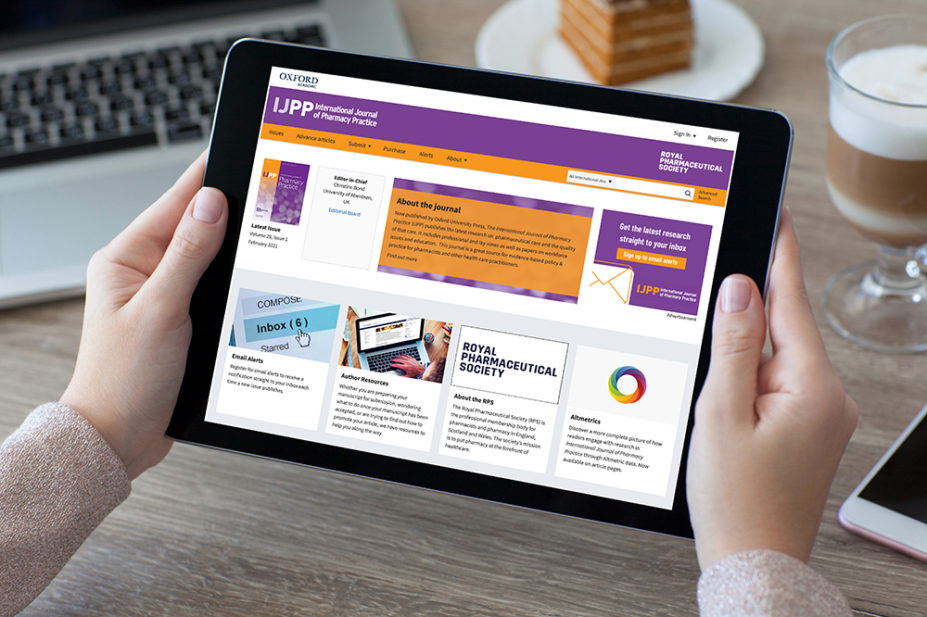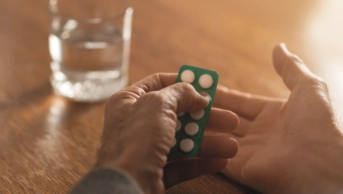
Mclean/Shutterstock.com
I wouldn’t be the community pharmacist I am today without my background in research. It has given me a critical eye and the tools to interpret and analyse data, and to quickly track down the most important information in a research paper.
I can’t put a number on how many times these skills have helped me as a pharmacist. They allow me to respond to patient queries about new medication and to have detailed discussions with doctors about off-label treatment options. I can also provide advanced answers, which has really built my patients’ and colleagues’ trust in me.
When patients asked novel questions that could only be answered by a research paper, the pharmacist would advise the patient to ask their GP instead
However, as a locum, I soon noticed that my many pharmacist colleagues didn’t have these skills too. They didn’t seem to be as comfortable with reading and interpreting the literature, and I could see how this apprehension was precluding them from all sorts of conversations.
For example, I noticed that when patients asked novel questions that could only be answered by a research paper, the pharmacist would advise the patient to ask their GP instead. Or, if a pharmacist was discussing doses with a GP, who happened to reference a paper, the pharmacist would often default with “If you’ve read the paper, I trust your judgement”.
We are just as scientifically skilled as medics or any other healthcare professionals, so why should we leave the difficult questions to them? Unfortunately, I saw a pattern of resistance from pharmacists when it came to research, but I can understand that feeling of being out of your depth when you haven’t read a research paper in years.
I decided to do something about it. With a portfolio of research experience, and with COVID-19 preventing any traditional learning, I set out to start a virtual pharmacists’ journal club.
I got in touch with my health board’s pharmaceutical services team, the members of which were so supportive in circulating information about the new club to community pharmacists in the area, including preregistration trainees. But, to my surprise, I also received many requests from pharmacists in hospital and primary care, so I opened up the journal club to all pharmacists — clearly, I had uncovered a big unmet learning need.
Meetings are held fortnightly on Wednesday evenings over Zoom, lasting 30–40 minutes. During the first 10 minutes there’s a teaching session on, for example, research designs, common statistical techniques and how to understand if a paper is good quality. During the remaining time, a member presents their chosen paper and this is followed by peer-discussion.
All meetings are recorded, and these recordings — along with slide decks and research articles — can be found on a Google drive for easy access.
So far, the journal club has been a huge success. Members have told me that now they are confident when researching for a patient: they can now tackle research papers, rather than shy away. They love the teaching portion of the club; it’s given them the background they need to pick up on things they would not have ordinarily.
And many pharmacists have told me how they’ve broadened their horizons; as well as looking at pharmacy research, they’re branching out into the wider medical areas they’re interested in. To me, this is fantastic — this is exactly why I set up the club.
There has even been a small silver lining to our new virtual world: the remote nature of the journal club meant it was open to pharmacists who may have struggled to join before the pandemic.
Of course, the club has not been without its difficulties. The main issue has been inconsistent attendance. Journal clubs need a regular group of members to get valuable discussion going. Meetings are fortnightly, rather than weekly, so members would often forget to join. But by sending out reminder emails a few days before the meeting, I’ve been able to increase members’ regularity at the club.
I strongly encourage you to get involved in a journal club or start your own, even if you have little to no research experience — get in touch with your local accredited university or your health board’s pharmaceutical services team, and see how they might be able to help you.
Research literacy is so valuable, but you don’t need formal qualifications to achieve it. It’s those who simply open themselves up to new experiences who become better healthcare professionals.
Iqra Sarwar, community pharmacist and freelance researcher, NHS Grampian


